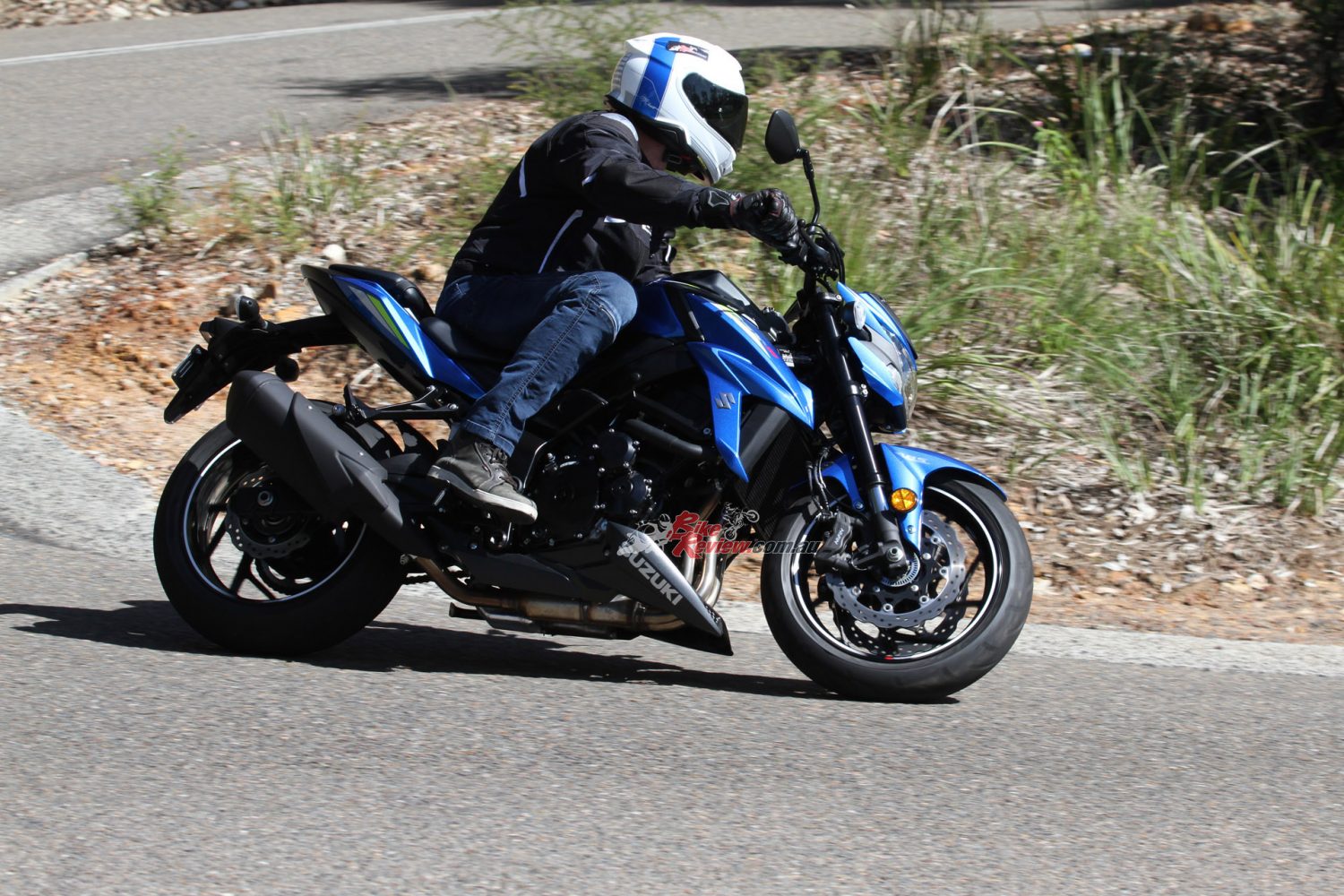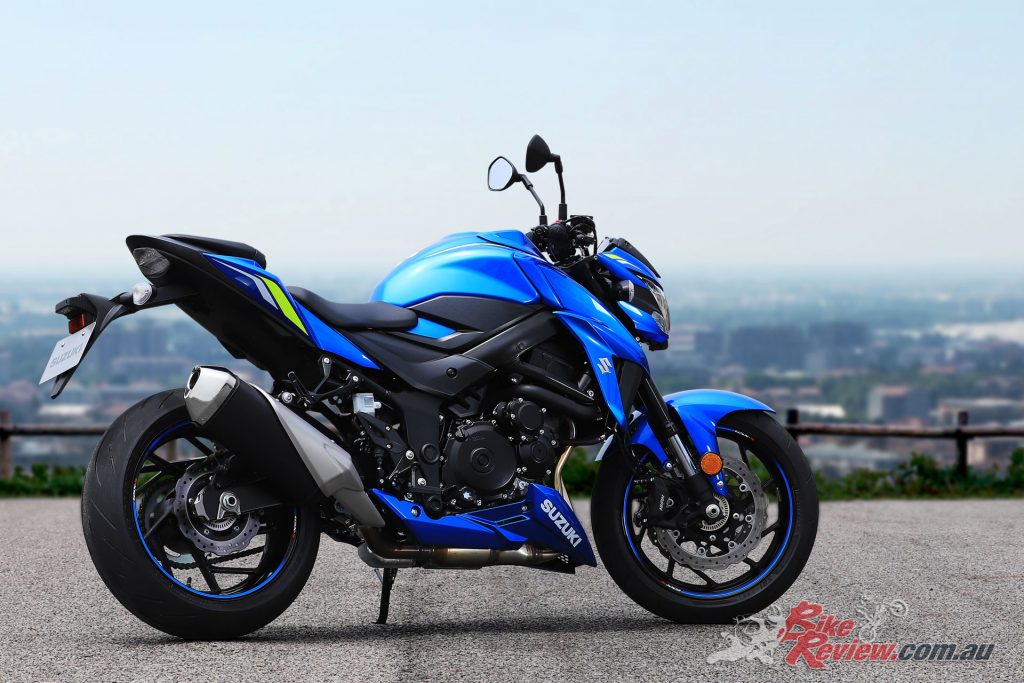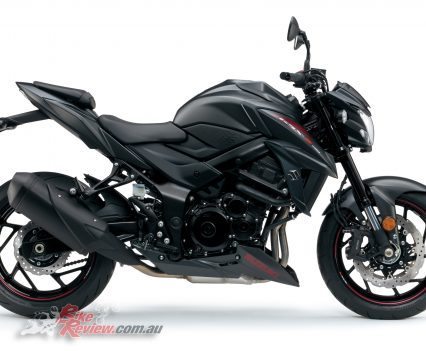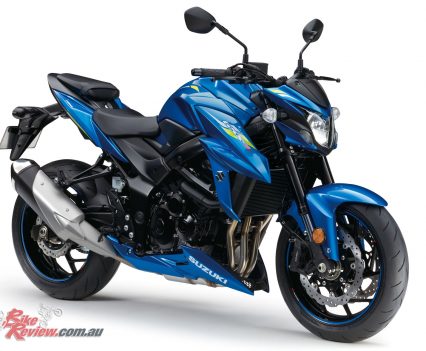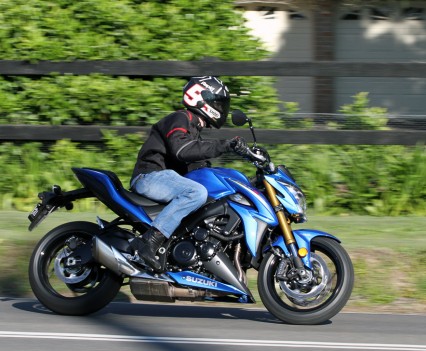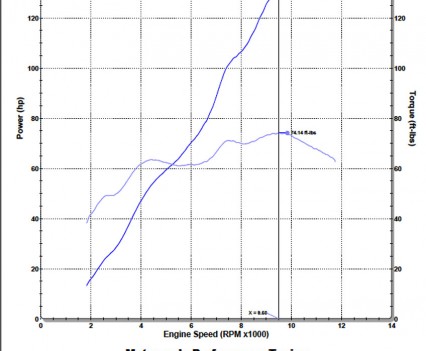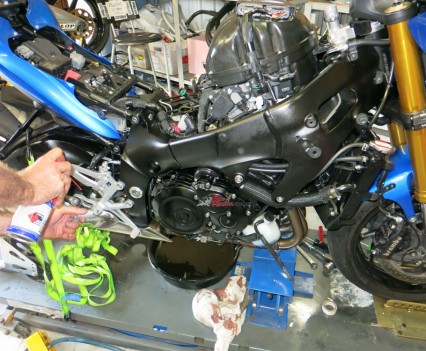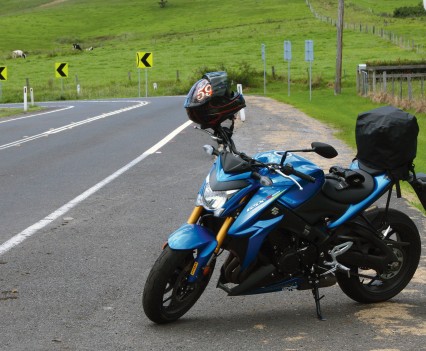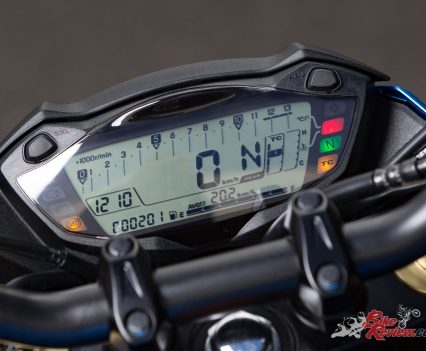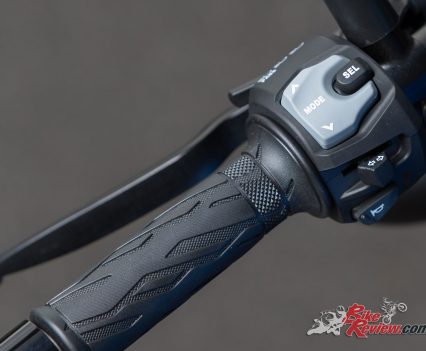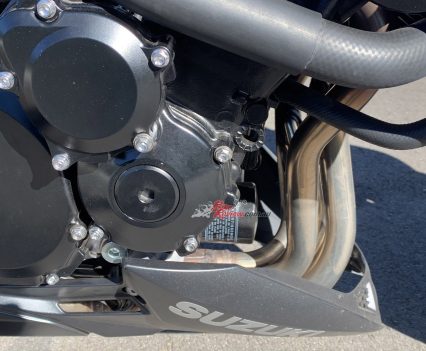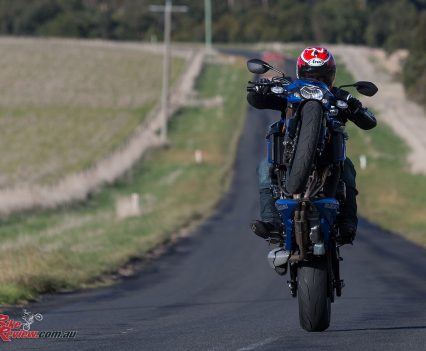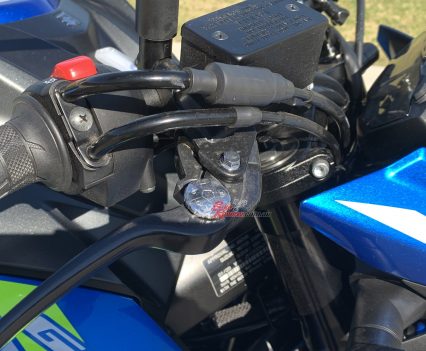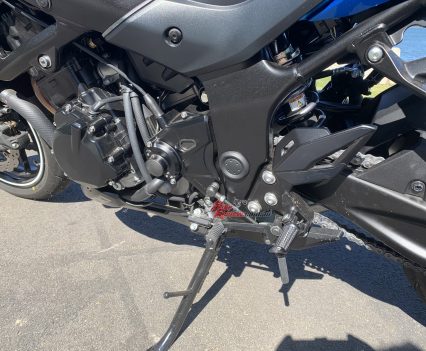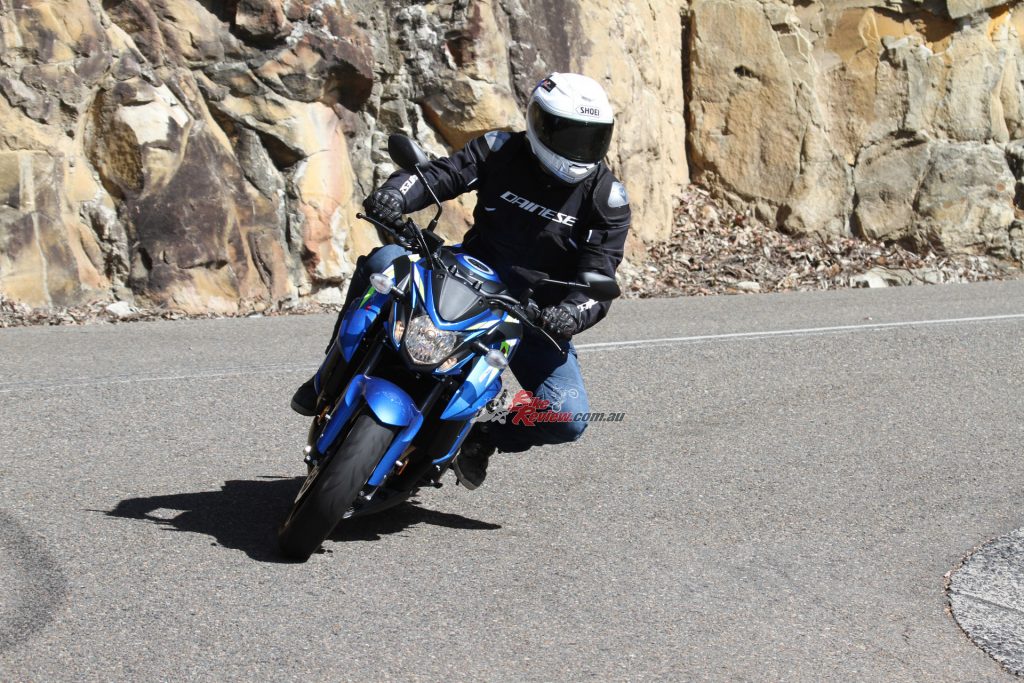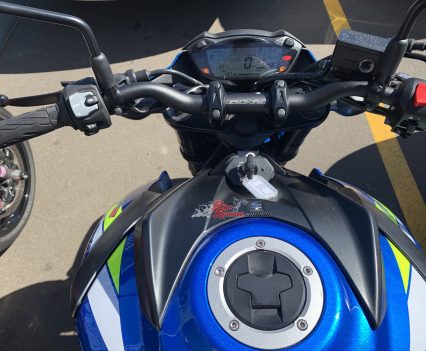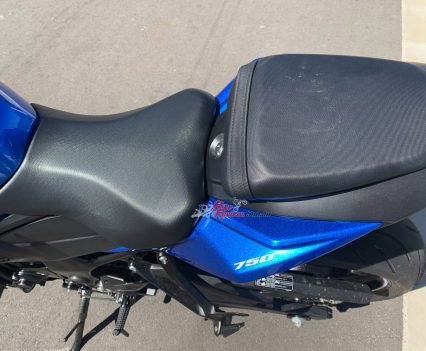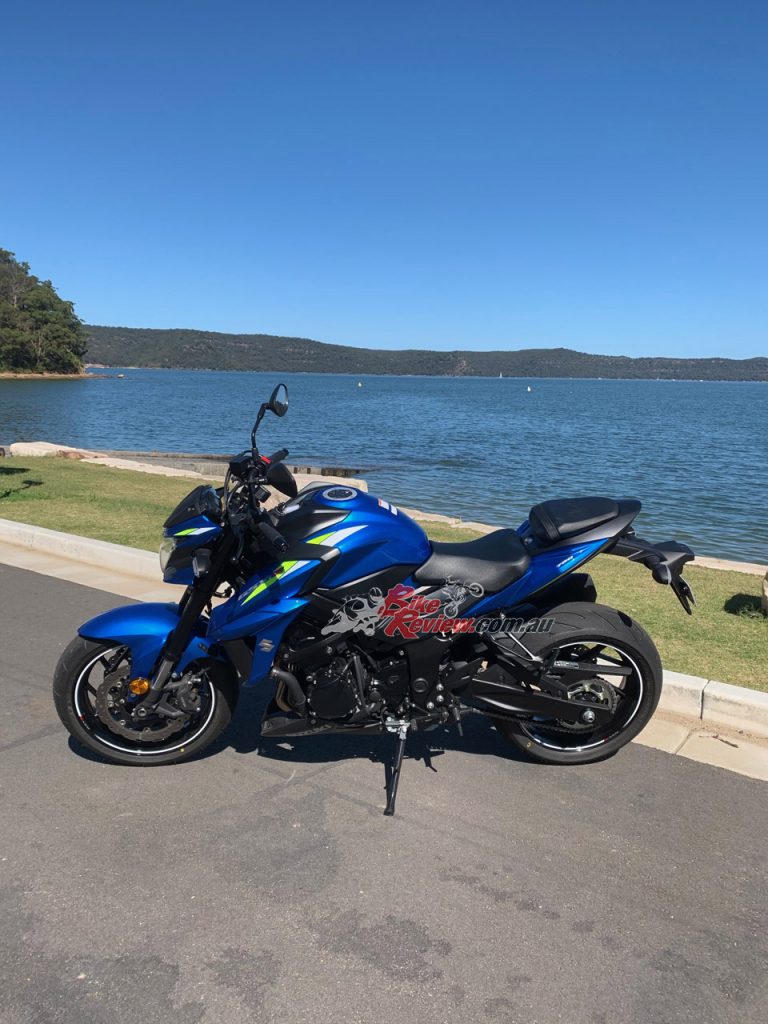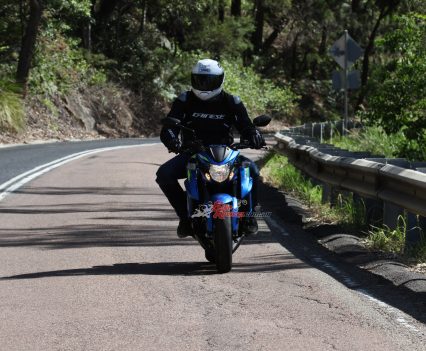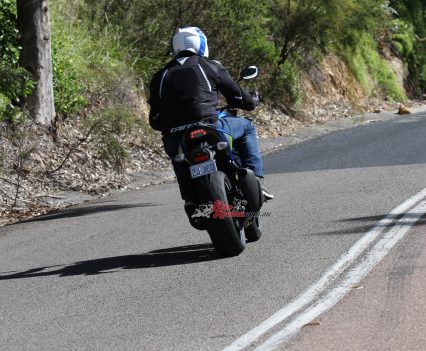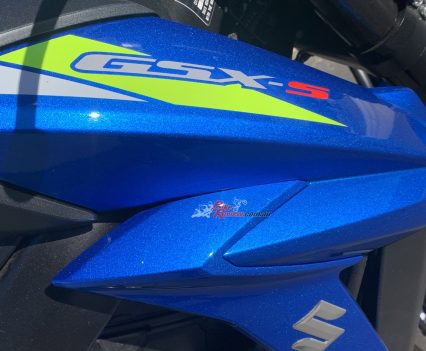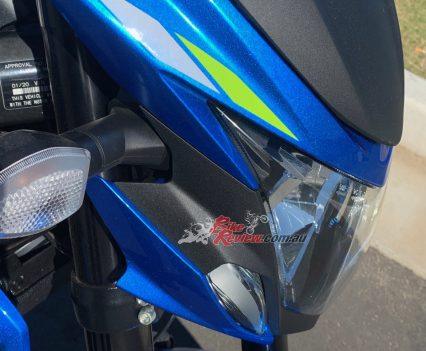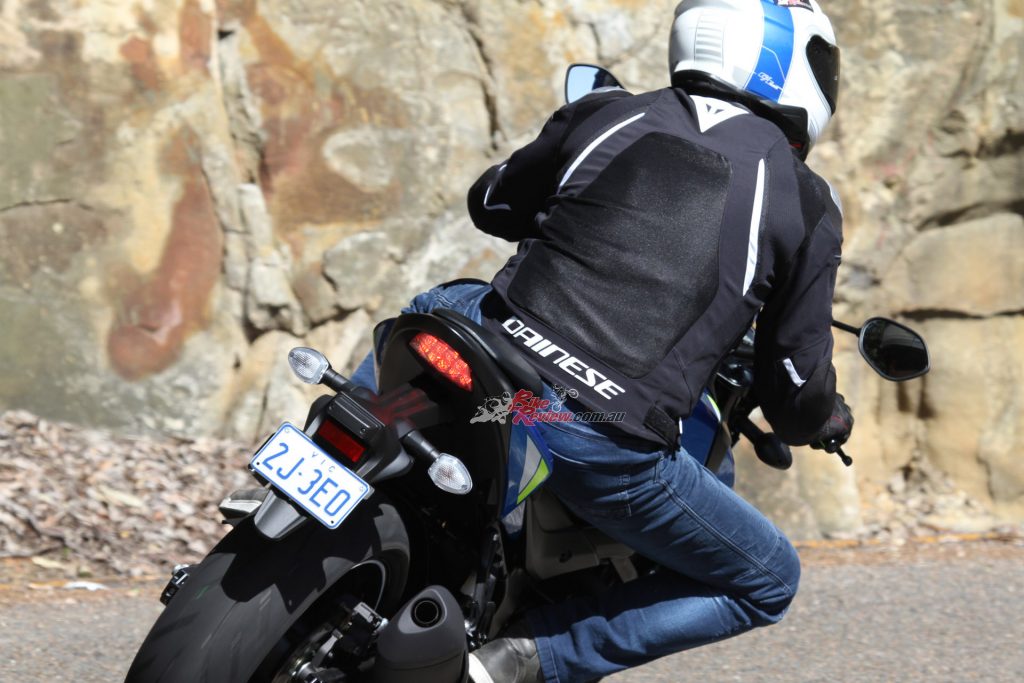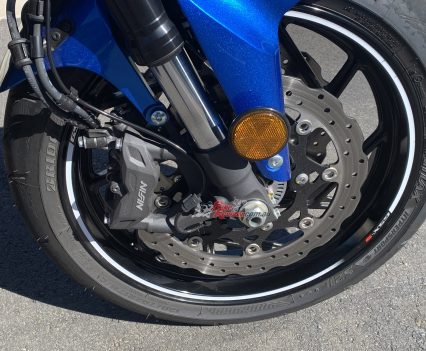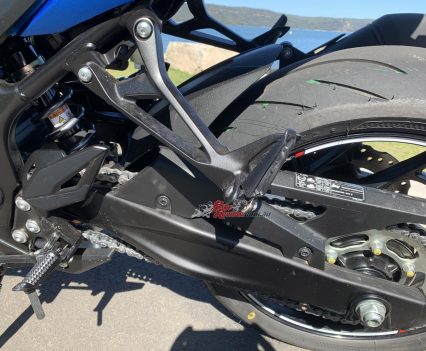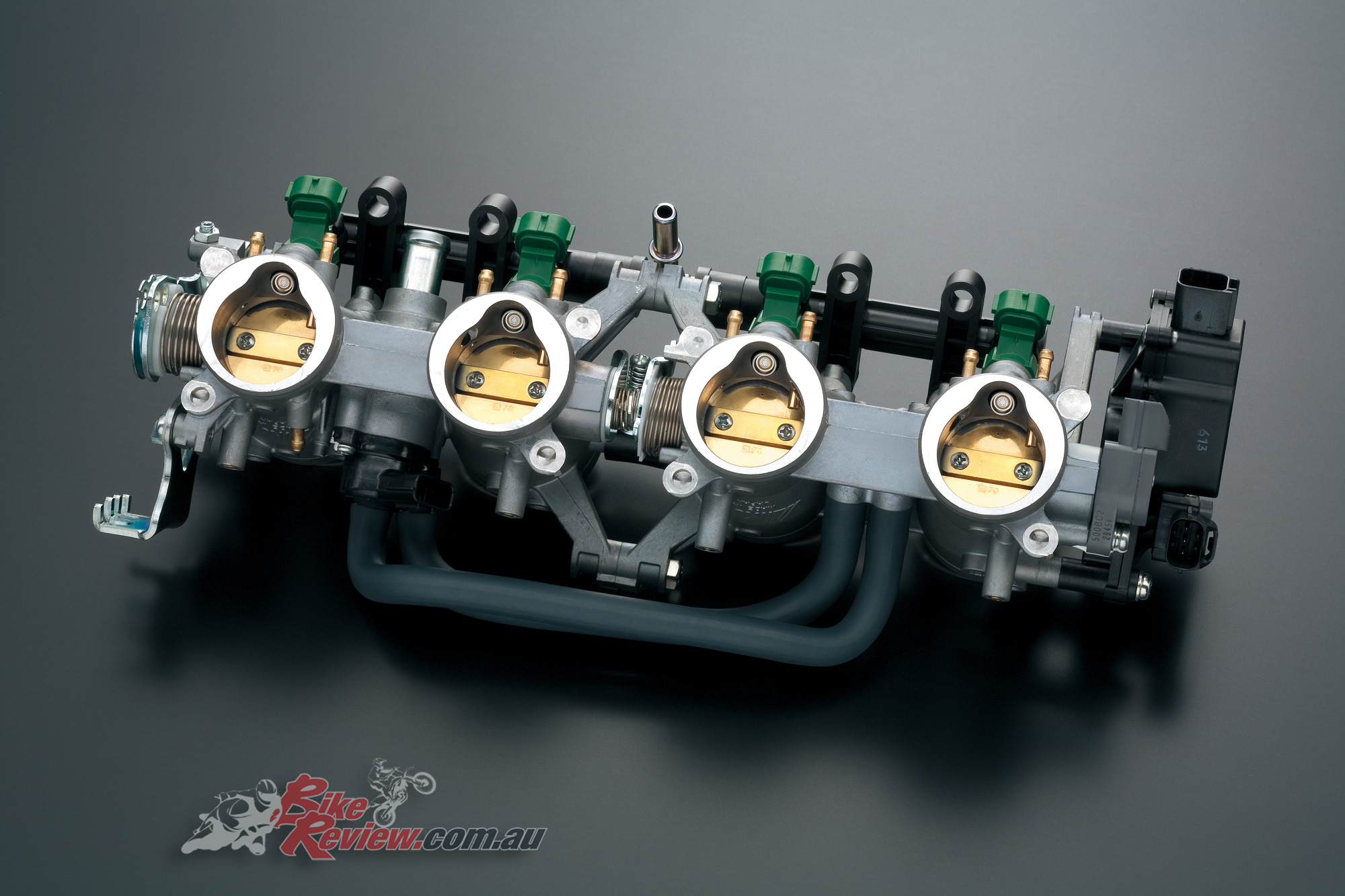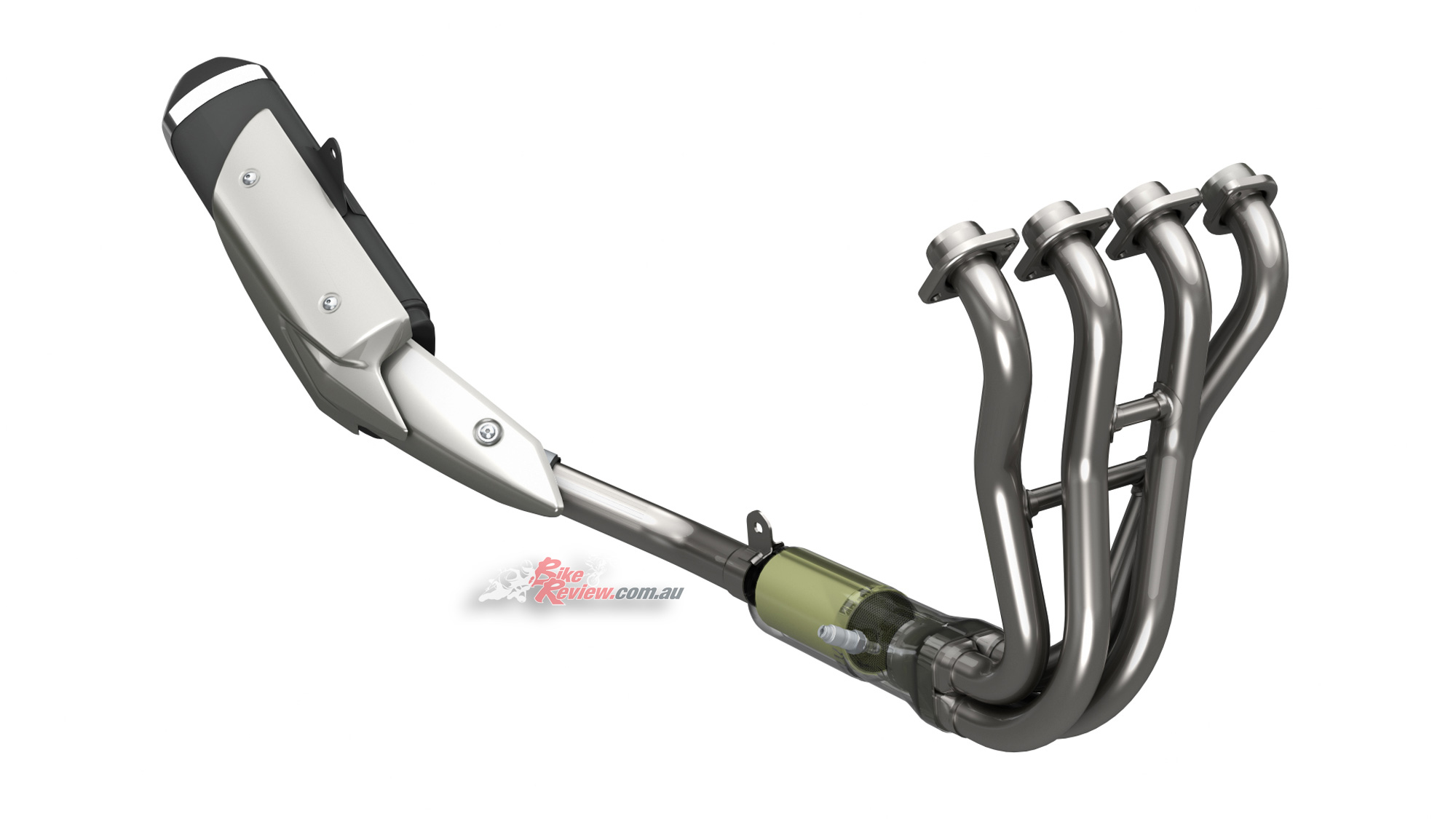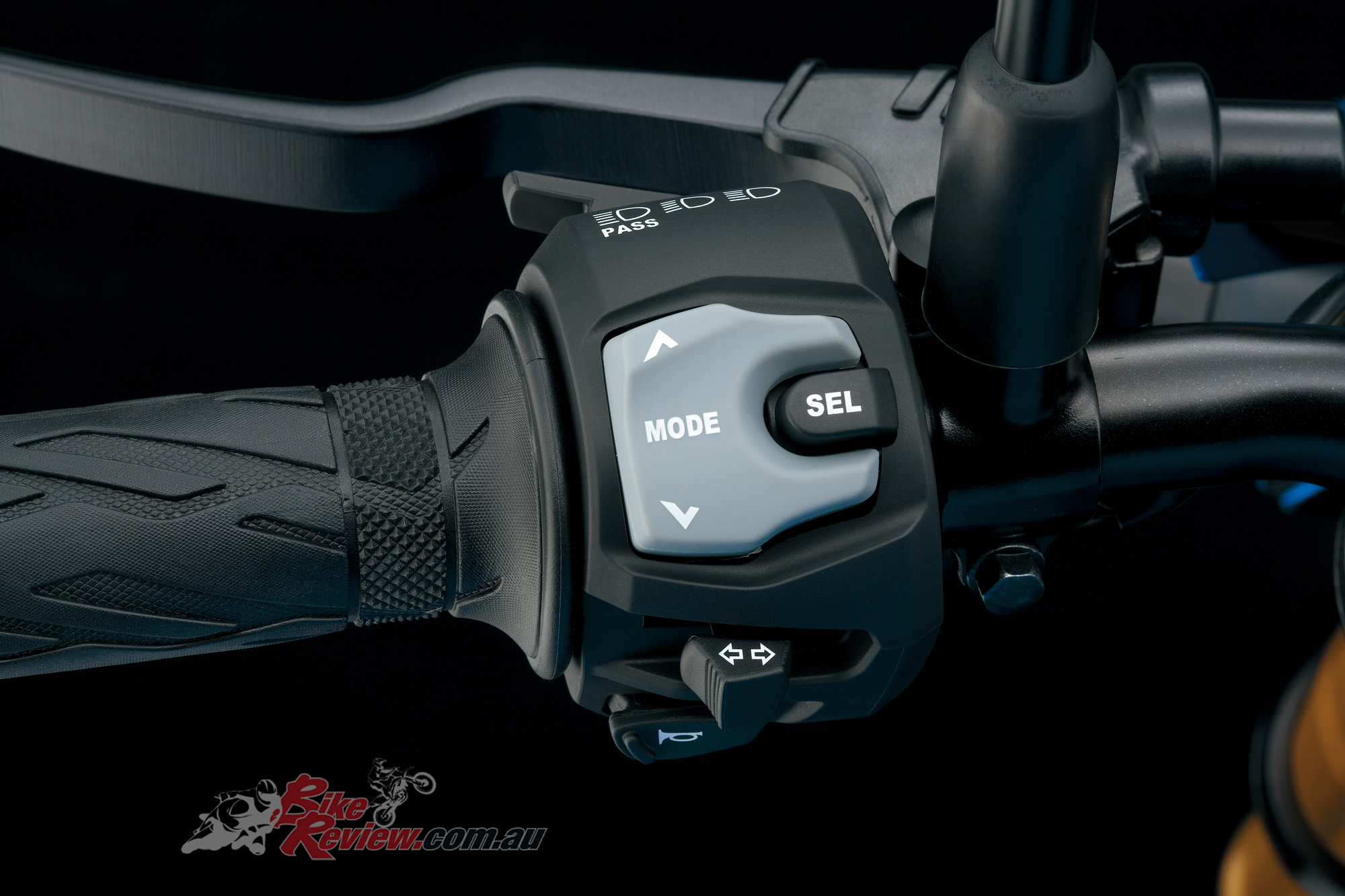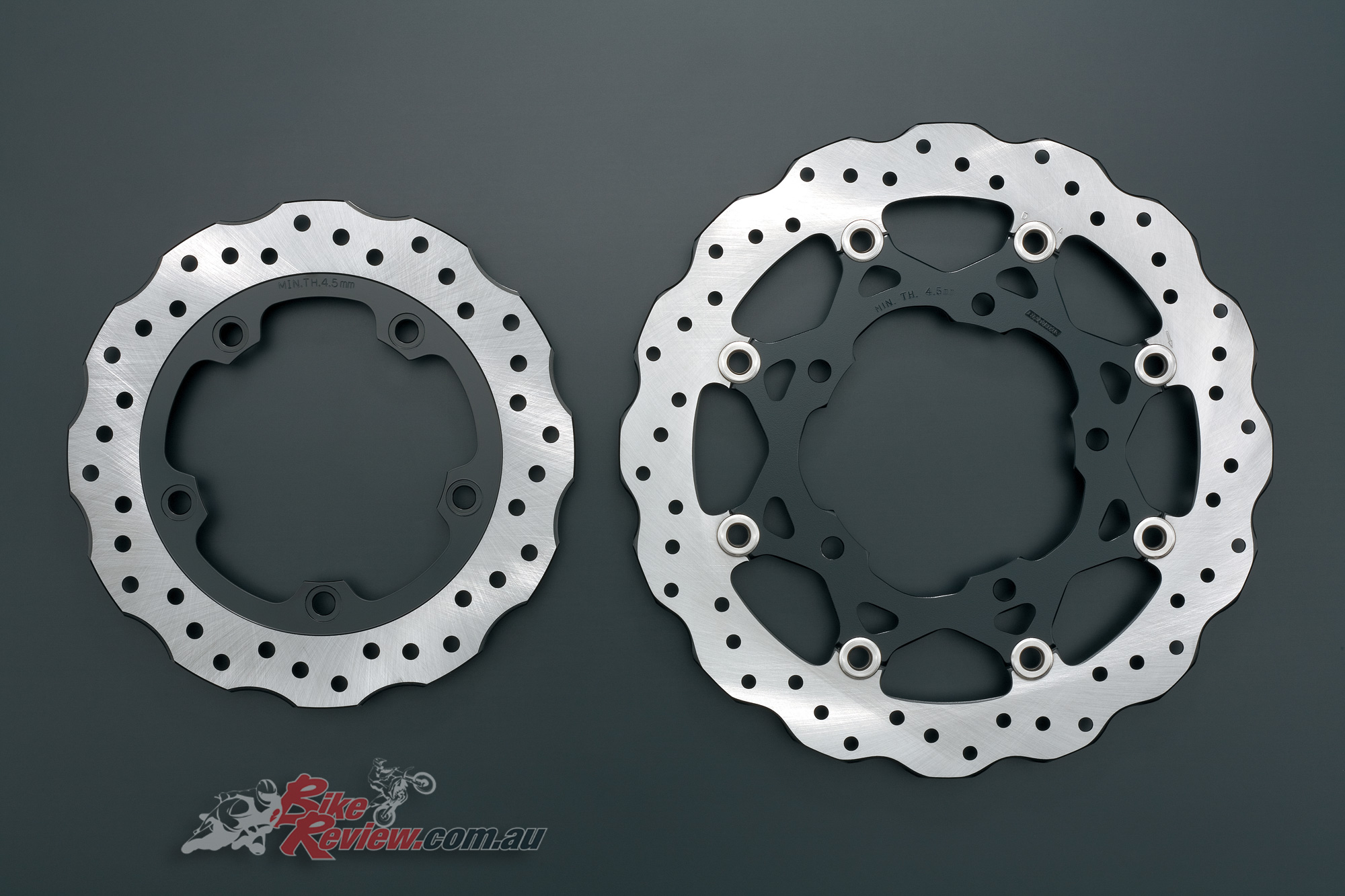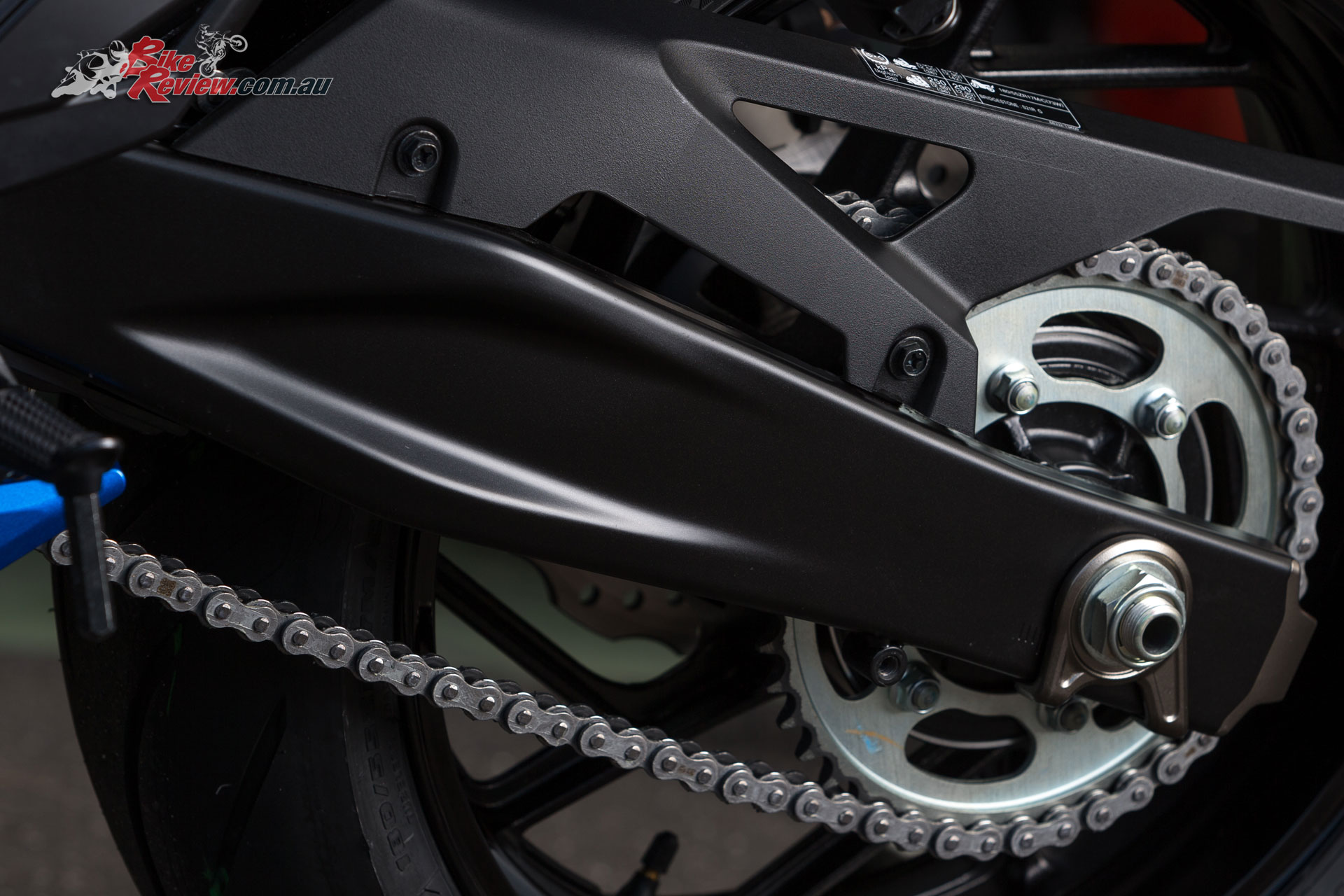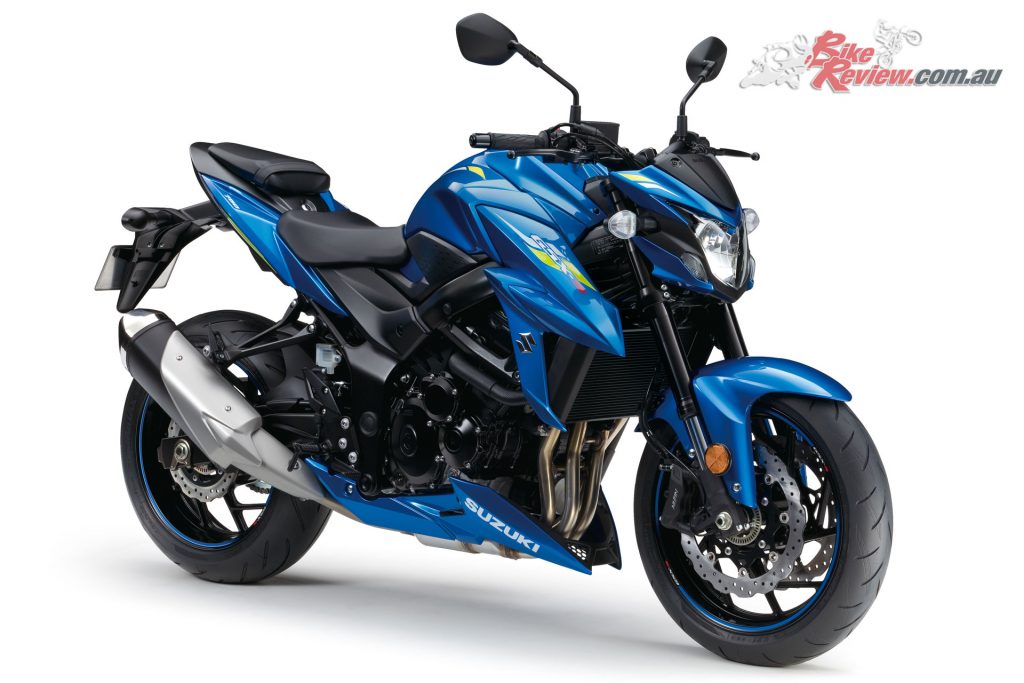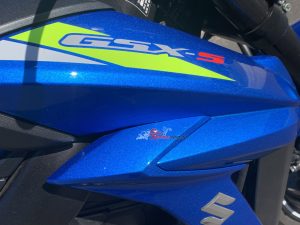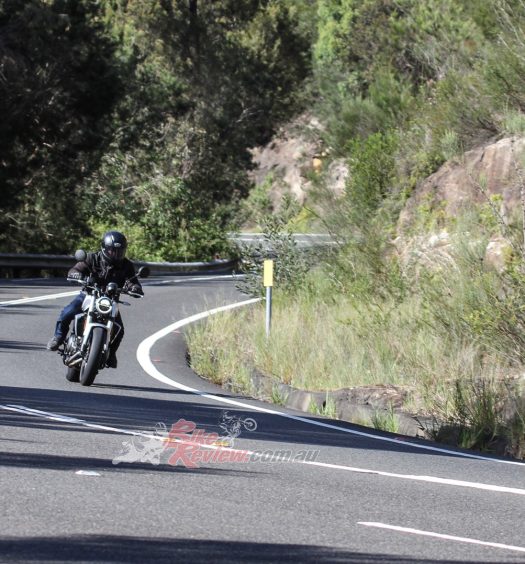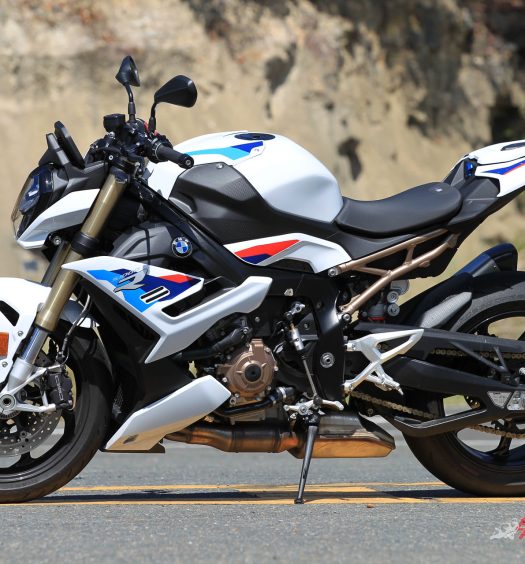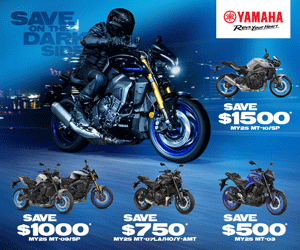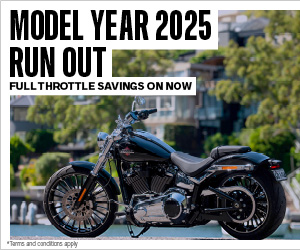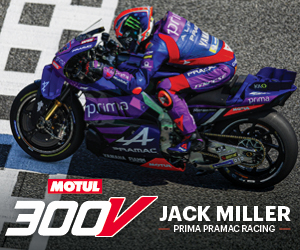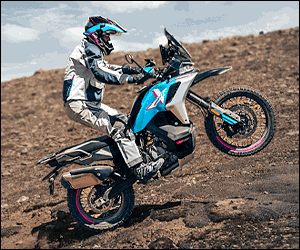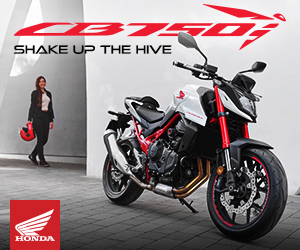The Suzuki GSX-S750 has to be the most underrated motorcycle in the nakedbike category. A bargain price, engaging engine and sportsbike heritage make it hard to fault... Review: Jeff Ware Photography: HMC Photography
The Suzuki GSX-S750 first arrived in 2017 and it received rave reviews. Being a ‘Big cc Nation’, the 750 hasn’t been as popular here as it has been in Europe, however, it shouldn’t be overlooked, it is one of the best performing nakedbikes on the market. Here’s our review…
Check out our 2020 GSX-S750 Video Review here…
Testing the Suzuki GSX-S750 has been a lot of fun. This is the 2020 model, unchanged for 2021, and it’ll set you back just $12,690.00 ride away, which is a bargain. This one is Metallic Triton Blue, which is like the Suzuki racing blue and it looks fantastic especially in the sun, it really gets that sparkle from the pearl. It is also available in Matt Black.
The GSX-S750 is underrated here in Australia but it is huge in Europe and Japan and rightly so. The 750 is one of my all-time favourites, it’s so much fun and anyone who’s a fan of three-quarter-litre engines and remembers the 750-era fondly will really get a kick out of this machine.
I’m no stranger to the GSX-S range or the GSX-R range. I had a GSX-S1000 long termer from Suzuki, plus a GSR750. I went to the GSX-S1000 world launch in Spain in 2015, I’ve also had numerous GSX-R750 and 1000 long term project bikes with Suzuki over the years, plus I collect older 750s. I’m a bit of a GSX buff I guess, I rate the 750cc engine particularly highly.
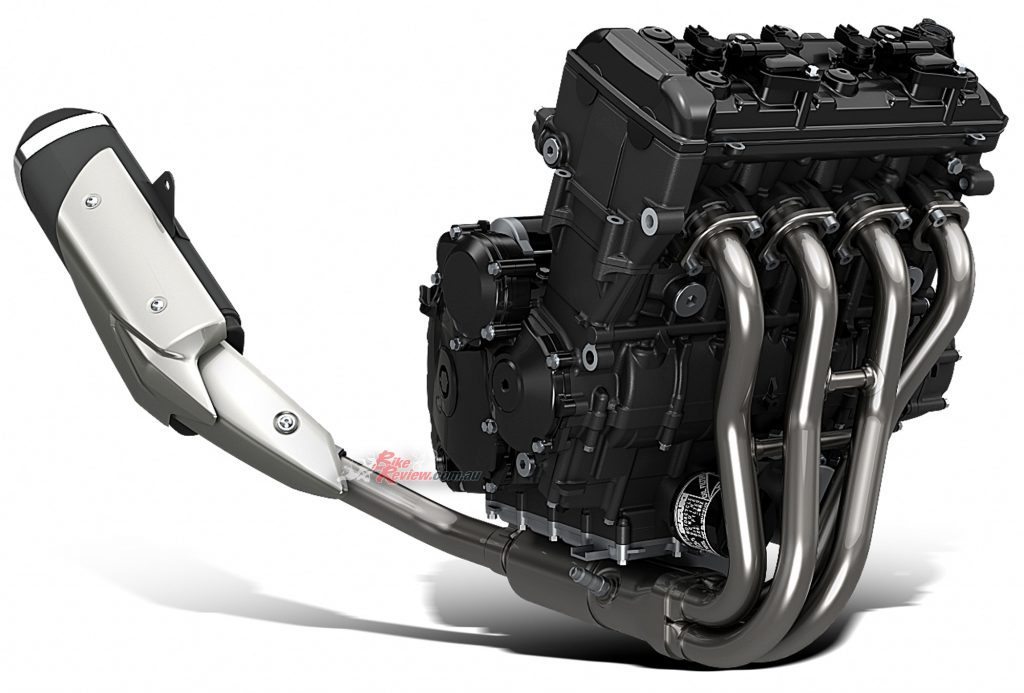
The GSX-S750 powerplant is that found in the old GSR750 and K5 GSX-R750 but revised for Euro4, increased power, better economy and a new exhaust system. It’s a great engine.
On the street and track I prefer them to the 1000 and I’ll tell you why. First of all, I love the engaging engine. From low rpm it still pulls hard, just not with the grunt of the 1000, it’s got plenty of pickup and Suzuki have done a really good job with the gear ratios. The gearing and the way the torque is delivered is spot on. It’s zippy with a nice intake growl plus a GSX-R750 style rasp to the exhaust.
Just sitting there at idle, the GSX-S sounds really good – it’s just egging you on and getting you ready to ride… it’s punchy off the turns, it’s fun around town and is just a really good motor with plenty of stick for the road and you just don’t need any more really. For a nakedbike on the road, which will serve as a daily ride, the 750 is enough.
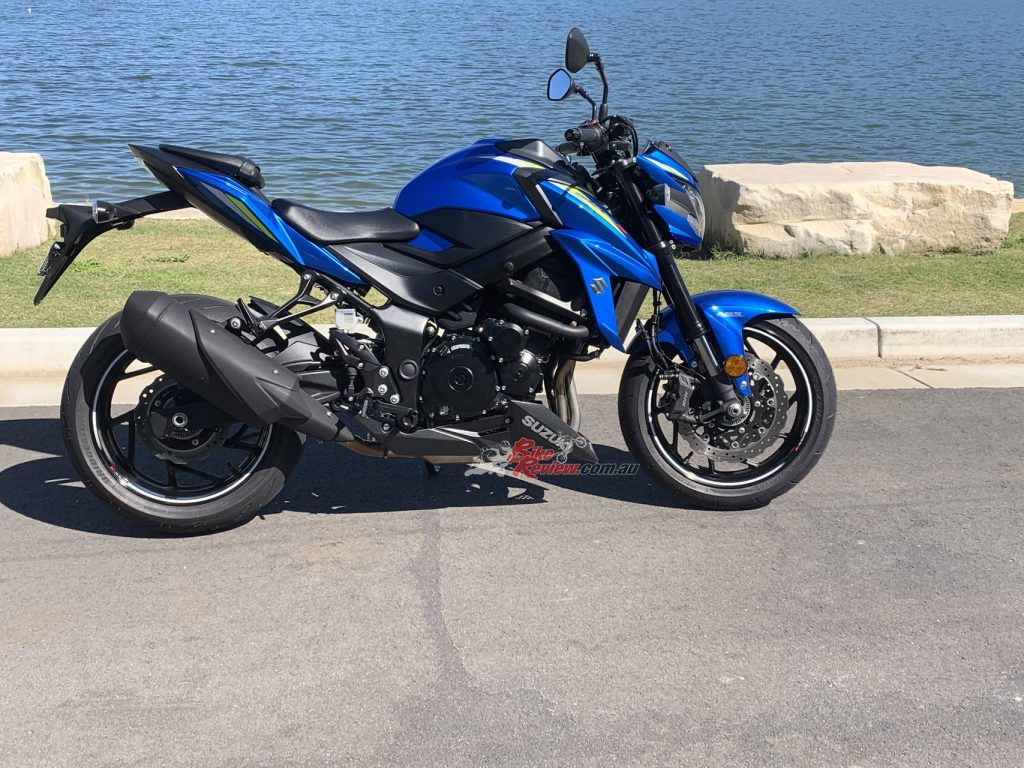
Keeping the content coming during COVID-19 proved tricky, often solo filming and shooting, but the GSX-S750 was a highlight, so much fun! Hopefully we are not heading into more but it isn’t looking good this week…
The 750 has got a good strong midrange supply of power and torque, a nice smooth throttle with good fuelling and is even engaging around town, so those commutes need not be so boring. What is really fun about it though is when you open up the taps on that motor and get all of that impressive 115 horsepower out of it! The four revs high. It makes peak power at 10,500rpm but it revs harder and has plenty of overrev as well. It’s an engine and gearing combo that really puts a grin on your face…
The gearbox is accurate and clean in shift with nice and close ratios right through the ‘box but sadly no quickshifter. It would be nice to have one, it’d make the bike a bit more fun to ride mostly. A slip-on or full system and a QS is about all I’d do to this bike personally…
Like I said, the intake howl is so sweet and Suzuki have had so much success with the GSX-R750 motor that you ca’t help but admire and enjoy it. In fact, this engine in this guise goes right back to 1985, as you may know but can read more about here, and that motor has gone around in various dimensions over the years, this one as far back as the 2005 GSX-R750.
The 750 feels a lot lighter than its hefty 213 kilos might otherwise suggest. It doesn’t feel that heavy, it feels nimble and chuckable, a lot more than the GSX-S1000 or the Katana, and it’s a sweet handling bike. The 750 has beautiful geometry, it’s one of those motorcycles that makes you feel a level of control that it is almost as if you have your hands on the front axle…
On the GSX-S750, whether you’re braking into corners or rolling into them carrying lots of corner speed, which you really can with that slipper clutch, the chassis just gives you control and it gives you confidence. You feel like you’re always in control and you’re riding the bike to its limits, not getting taken for a wild ride, with stacks of power that’s hard to tame and hard to control. You can really get the best out of this machine yourself, which is what makes it very rewarding.
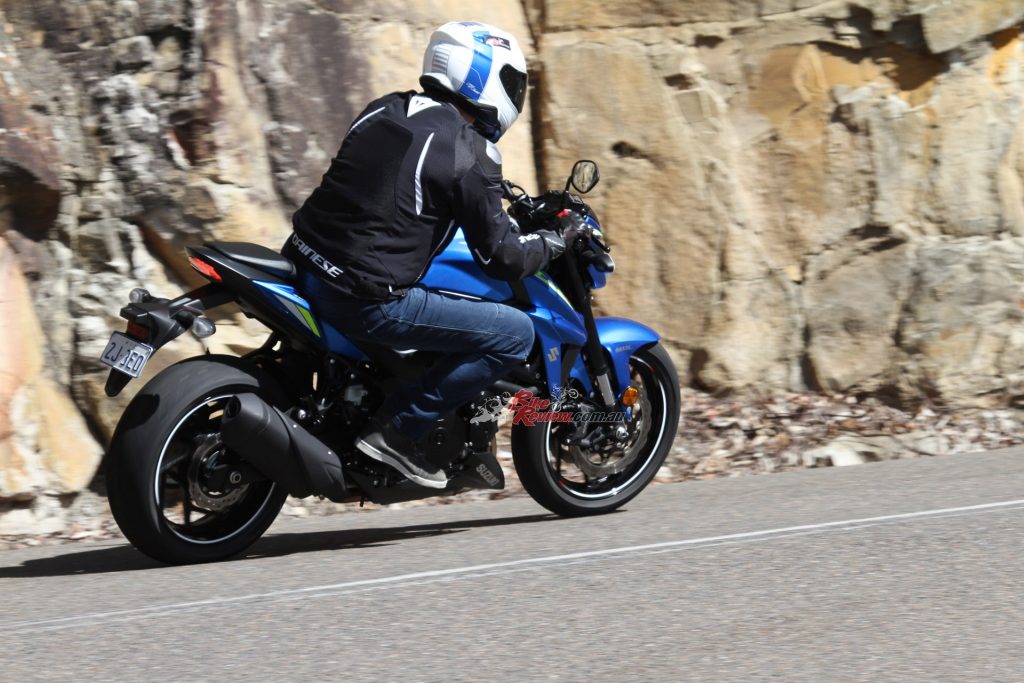
A smooth throttle and good torque plus a cracking top-end. With traction control as well, the 750 is fast off the turns.
The 750 has sportier suspension than the 1000. The setup is quite firm at both ends and fairly basic but surprisingly, despite the fact I am 95 kilos in gear, it is spot on for me. I didn’t touch one clicker or preload and I’m talking riding on fast, smooth, grippy roads where you are braking deep into the apexes and then getting hard the gas with lots of lean angle, through to the bumpy roads out in the countryside – some fast some slow.
It’s a good all-around ride. Both ends are well supported, it’s not wrist shattering or jolting in any way, it’s well damped and it’s well sprung and balanced so I was really impressed by that.
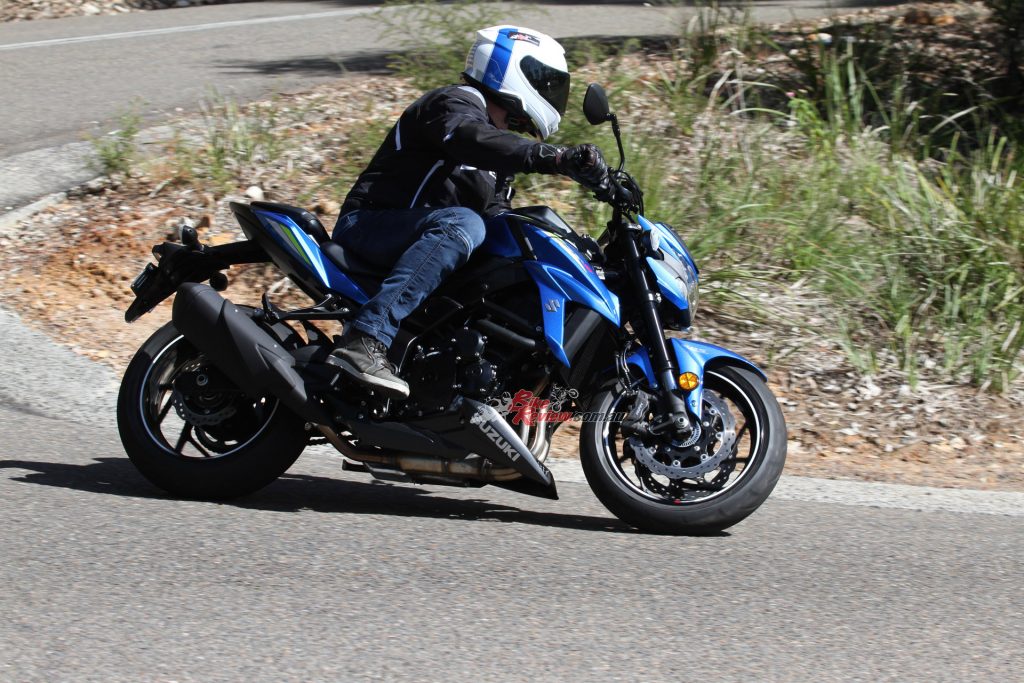
A good all-around ride, whether commuting or having fun up on the local twisties, the GSX-S750 works.
I love the seating position of the GSX-S750. It’s a fairly small bike, a little bit wide around the tank, but not too bad. It has fairly narrow ‘bars for a nakedbike but they’re a really comfy bend and they have plenty of leverage. Being fairly old school, the GSX-S has got a very basic LCD dash but it has everything you need and is small and compact, Street Fighter style.
The TC and other menu controls are operated by the standard Suzuki left button, a very user-friendly simple system I really like. The levers are adjustable and generally everything is standard and fall easily to hand. You can read more about the electronics in the breakout. I spent most of the time with the TC on level 2 and found the Nissin ABS to be basic but more than up to the job in my emergency stop testing. For the price point, it’s got everything you need electronically, and it’s a good fun basic bike that takes you back to the roots of riding.
The Nissin brakes are super impressive, with four piston radial-mount calipers and 310mm semi-floating rotors at the front. They have strong initial bite and a nice intimate feel and modulation to them, with lots of stopping power. The rear brakes are OK for cornering and stability also. I would not change the brakes in any way on this bike, even the lever position and shape feels really natural and nice so Suzuki have clearly done a fantastic job here.
The GSX-S offers a fairly vibe free experience out on the road, of course up in the revs it does get a bit buzzy but that’s because it’s a highly tuned 750 superbike motor! Aside from that, it’s comfortable and you can ride it for hours and hours. The seat is comfortable, it’s plush enough, but has a sporty enough support to it.
The bike has just enough room between the seat and the footpegs for me. I’m 187 centimetres tall and I’ve got long legs and felt a bit cramped, but I wouldn’t want to sacrifice any ground clearance for that and I like that sporty position for cornering. The dash is a little hard to read at a glance, the mirrors are vibe free and OK, if a tad small, and the sidestand is easy enough to flick down in boots. I didn’t test the bike with a pillion on the back.
There’s plenty of steering lock for U-turns, an immobiliser and steering lock security system, and a little room under the seat, so it makes it good around town bike. For out of town there’s a 16-litre fuel tank, so it’s got a good fuel range, and it’s got Suzuki’s Low RPM Assist, which raises the revs as you release the clutch, which helps around town, plus it has a one press Easy Start starting system so you just hit the starter button once and it fires into life…
The GSX-S750 is very nicely finished, it’s got really good paint and neat graphics. The black frame, swingarm, wheels, ‘bars, clamps and engine look good along with the other blacked out parts. The fasteners are typically good Suzuki items and overall, this is a lot of motorcycle, with top Japanese quality, for under $13k ride away…
Overall, the GSX-S750 is worth considering if you need an allrounder and daily rider that you want to have a really good time on during the weekends up the local twisties with your mates or even on the occasional track day.
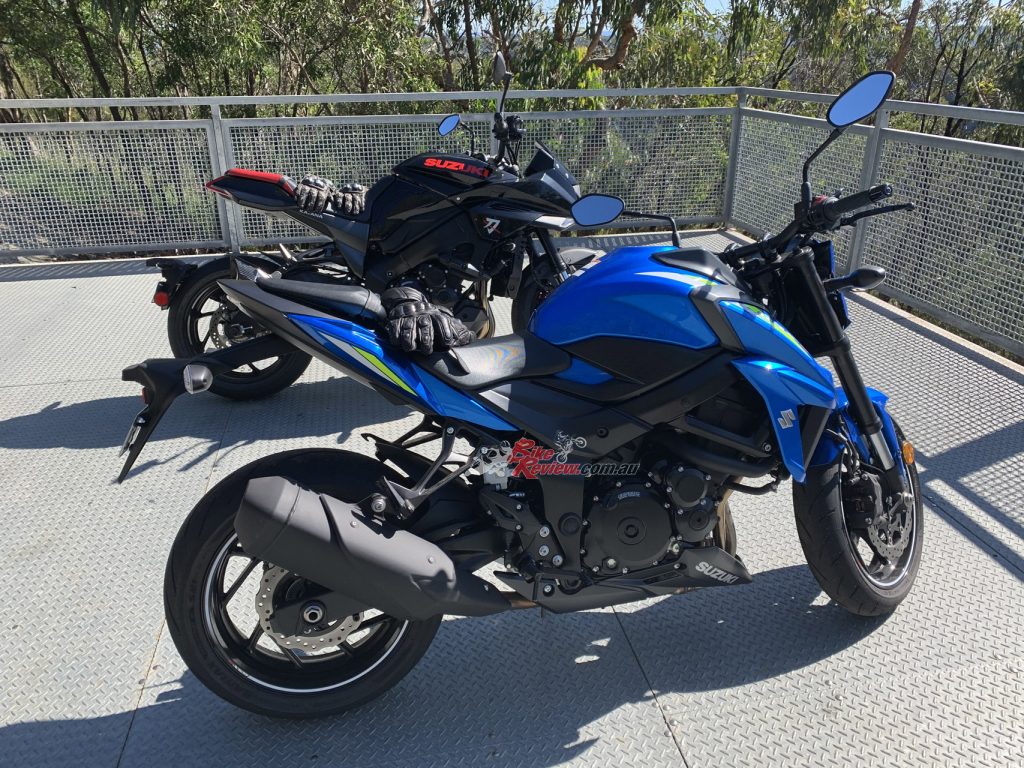
One of the test days was spent putting the stock 750 up against the PTR KATANA. The 750 came out on top in all situations other than outright roll-ons. Talk about a little machine lunching above its capacity!
If you throw it down the road then you’re not going to go bankrupt. It is refined and highly developed, the engine goes back a long way so there are lots of aftermarket parts available for it and it’s a great platform to develop into something you really want or just leave it standard.
2020 Suzuki GSX-S750 Tech Talk
The GSX-S750 retained the K5 GSX-R750 based powerplant found in the outgoing GSR750 model, but saw a number of improvements to boost power by eight per cent, with torque up a single Nm to 81Nm. Power was up at 84kW (114hp) thanks to new crankcase ventilation holes to reduce pumping losses, while new 10-hole fuel injectors were also used, helping with Euro4 compliance, which boosted fuel economy. A new four-into-two-into-one exhaust was also used, with equaliser pipes designed to boost mid to low range output.
A catalytic converter was also included in the exhaust however there is no exhaust valve or servo motor, helping save on weight. On the Mat Black version the exhaust muffler is totally blacked out. While the exhaust is relatively quiet the airbox has been designed with three optimised inlets, giving a great induction howl, which is particularly impressive sounding while riding the bike.
Gearing has been reduced in first through fifth gear to offer better acceleration, while sixth gear retains the same ratio as found on the previous GSR as an overdrive.
Electronics include Suzuki’s Dual Throttle Valve system, Idle Speed Control, Low RPM Assist, Easy Start System, Nissin ABS and a basic three level Traction Control system, which can be switched off.
A simple LCD display from the GSX-S1000 provides all the information and controls on the left switchblock allow you to switch the traction control levels between off, 1 (least intervention), 2 (normal riding), and 3 (wet/slippery conditions). There’s also a gear indicator, fuel gauge, trip meters, estimated remaining range, and fuel economy calculator.
Brakes are Nissin four-piston radial-mount, two-piece calipers on 310mm rotors, while a single 245mm rear rotor and caliper is fitted, this is backed up by the aforementioned Nissin ABS system.
Suspension is 41mm KYB inverted forks, which offer good support and are well balanced with the new front brakes. The rear link-type monoshock offers a smooth, sporty ride. A new tapered swingarm also replaces the old box-section offering and is considerably more stylish. Both ends are only preload adjustable.
10-spoke cast aluminium wheels look the business and are clad in Battlax Hypersport S21 tyres.
Smaller details include black levers with an adjustable front brake lever, LED taillight, clear indicator lenses, petal rotors, lightweight footpegs, raised fat ‘bars and gold anodized fork legs. Suzuki have also added (in comparison to the GSR) the bellypan as standard equipment, while in comparison to the GSX-S1000 the bodywork has been revised to offer more coverage over and around the engine.
The fuel tank capacity is also 16L with Suzuki claiming 20km/l mileage.
2020 Suzuki GSX-S750 Specifications:
Price: $12,690 On-Road ($64 per week with Suzuki Finance – check here)
Warranty: Two-year, unlimited kilometre
Colours: Matt Black, Metallic Triton Blue
Claimed power: 84kW[114hp]@10,500rpm
Claimed torque: 81Nm@9000rpm
Wet weight: 213kg
Fuel capacity: 16L
Engine: Liquid-cooled, four-stroke, DOHC, in-line four-cylinder, 749cc, 72 x 46mm bore x stroke, 12.3:1 compression ratio, Traction Control
Gearbox: Six-speed, constant mesh
Chassis: Steel tubular diamond frame, tapered swingarm
Rake: 25.2°, Trail: 104mm, Wheelbase: 1455mm
Suspension: KYB 41mm inverted forks, 120mm travel, preload adjustable, Link-type monoshock, 138mm travel, seven-way preload adjustable
Brakes: Nissin ABS, Nissin four-piston radial mount calipers, 310mm floating rotors, single caliper and 245mm rear rotor
Wheels & Tyres: 10-spoke cast aluminum wheels, Bridgestone Battlax Hypersport S21 tyres, 120/70 – 17, 180/55 – 17
Dimensions:
Seat height: 820mm
Overall height: 1055mm
Overall width: 785mm
Overall length: 2125mm
Instruments & Electronics: LCD multifunction display, Easy Start, Traction Control System, Nissin ABS, Low RPM Assist, Dual Throttle Valves, Immobiliser System.
The Verdict | Review: 2020 Suzuki GSX-S750 Nakedbike


